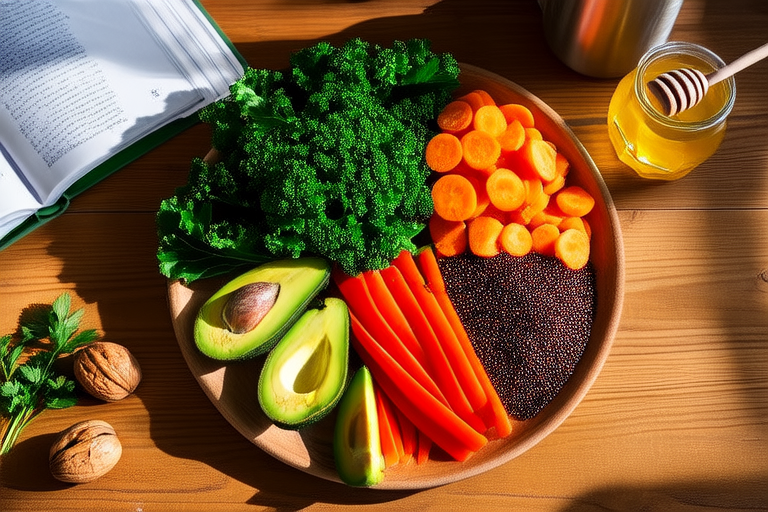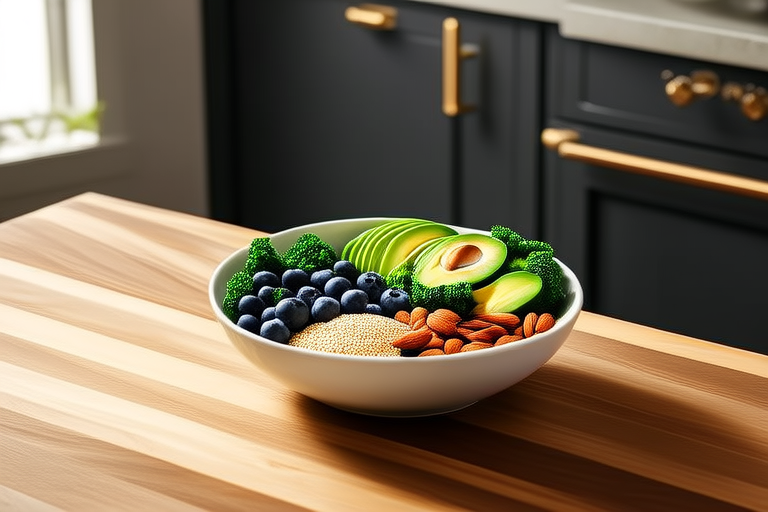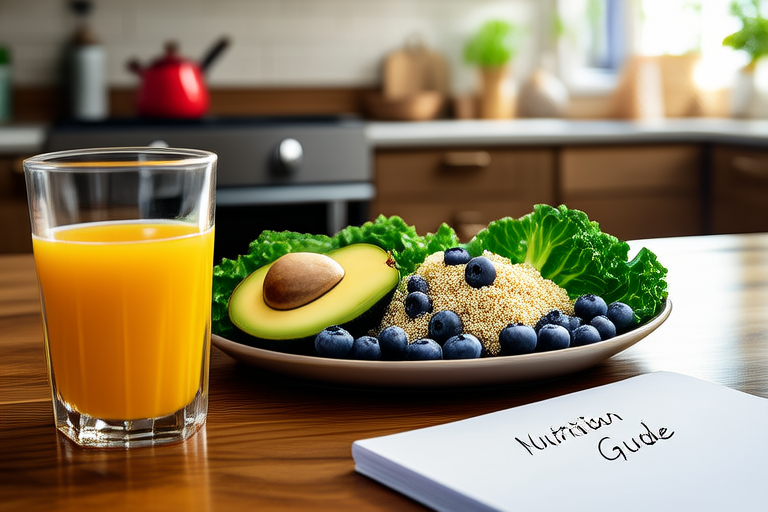The Ultimate Guide to a Healthy Diet
Nutrition is the cornerstone of our overall health and well-being. A well-balanced diet not only fuels our bodies but also helps prevent chronic diseases, improves mental health, and enhances physical performance. This guide aims to provide simple, actionable tips that can be incorporated into your daily routine to promote a healthier lifestyle. By understanding the importance of each component of a balanced diet and adopting smart eating habits, you can take significant steps towards improving your health.
Key Components of a Balanced Diet
Fruits and Vegetables
Fruits and vegetables are essential for a healthy diet. They are rich in vitamins, minerals, and antioxidants that help protect against disease and support various bodily functions. Aim to include a variety of colors in your meals to benefit from different nutrients. For instance, leafy greens like spinach and kale are excellent sources of iron and calcium, while berries offer a high dose of antioxidants.
Whole Grains
Whole grains such as brown rice, quinoa, and oats are vital for maintaining energy levels throughout the day. These complex carbohydrates provide sustained energy because they are digested more slowly than refined grains. Incorporating whole grains into your diet can also aid in digestion and improve heart health.
Lean Proteins
Including lean proteins like chicken, fish, tofu, and legumes is crucial for muscle repair and growth. These foods are also low in saturated fats, making them better choices for heart health. Protein-rich diets can also help you feel fuller longer, aiding in weight management.
Healthy Fats
Not all fats are created equal. Unsaturated fats found in avocados, nuts, seeds, and olive oil are beneficial for heart health. Omega-3 fatty acids, prevalent in fatty fish like salmon and sardines, have anti-inflammatory properties and can improve brain function.
Practical Advice: Portion Control and Hydration
Portion control is key to maintaining a healthy weight and preventing overeating. Understanding serving sizes can help you avoid consuming too many calories. For example, a single serving of pasta is approximately one cup cooked, which might seem smaller than what you’re used to. Using smaller plates and bowls can also trick your mind into feeling satisfied with less food.
Hydration is often overlooked but plays a critical role in overall health. Water aids digestion, supports kidney function, and helps regulate body temperature. Aim to drink at least eight glasses of water per day, adjusting based on activity level and climate. Herbal teas and fruits with high water content, like watermelon, can also contribute to your fluid intake.
Meal Planning and Minimizing Processed Foods
Meal planning is an effective way to ensure you’re eating nutritious meals consistently. Preparing meals in advance can save time and reduce the temptation to opt for fast food or convenience items. Consider dedicating one day a week to preparing several meals that can be stored in the fridge or freezer for easy access during busy days.
Minimizing processed foods and added sugars is another important step towards better health. Processed foods often contain unhealthy additives and preservatives, and added sugars can lead to weight gain and increase the risk of diabetes. Opt for whole, unprocessed foods whenever possible. Reading food labels carefully can help you make informed choices about the products you purchase.
Dining Out Wisely
Eating out doesn’t have to derail your healthy eating plan. When dining out, start by looking for restaurants that offer a wide range of fresh ingredients and healthy options. Many establishments now provide nutritional information, which can be useful for making healthier choices. Opt for grilled or steamed dishes instead of fried ones, and ask for dressings and sauces on the side to control portion sizes.
Another strategy is to share meals with a friend or family member. This not only helps manage portion sizes but also allows for social interaction. If you’re unsure about the nutritional value of a dish, don’t hesitate to ask the server for guidance.
Personalizing Your Dietary Goals
Everyone’s nutritional needs are unique, depending on factors such as age, gender, activity level, and medical history. It’s important to set realistic and achievable goals tailored to your specific circumstances. Consulting with a healthcare provider or a registered dietitian can provide personalized advice and support. They can help you create a meal plan that meets your individual needs and preferences, ensuring that your dietary changes are sustainable in the long term.
Remember, the journey to better health is ongoing. Be patient with yourself and celebrate small victories along the way. Consistency is key, so focus on making gradual changes that you can maintain over time.
Conclusion
Adopting a healthy diet is one of the best investments you can make in your health and well-being. By incorporating a variety of nutrient-dense foods, practicing portion control, staying hydrated, and minimizing processed foods, you can enjoy improved physical and mental health. Remember, the goal is not perfection but progress. Make informed choices, listen to your body, and seek professional guidance when necessary. With dedication and persistence, you can achieve a balanced and nourishing diet that supports your overall wellness.










